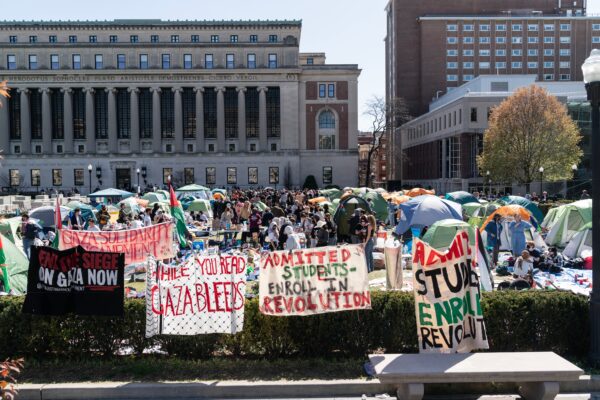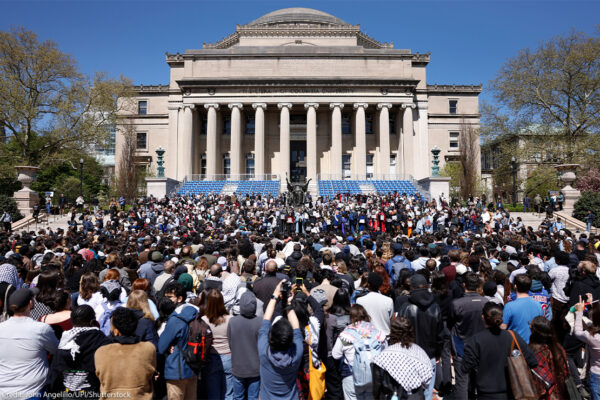As the war between Israel and Hamas enters its eighth month, students across the country are organizing demonstrations calling for a ceasefire and urging university administrations to divest from all groups who may profit from the ongoing conflict. In New Jersey, pro-Palestinian students at colleges across the state, including Princeton and Rutgers, have also gathered in recent days, leading to the arrest of at least 13 protesters by Princeton campus police on April 29. This was in stark contrast to a reprieve at Rutgers on May 2, where, instead of responding with police force, university officials met and negotiated with students who agreed to disband their encampment in exchange for certain demands and a commitment to ongoing talks with the university.
Some argue that colleges are within their legal rights to regulate student demonstrations by force. But, as Rutgers demonstrated, even if colleges and universities can disperse protests by arresting students, that doesn’t mean they should.
The ACLU has defended the First Amendment right to protest for more than a century. In that time, we’ve seen students at colleges and universities around the nation gather by the thousands to publicly exercise their right to free speech and expression. College campuses are a proven ground zero for protest, having hosted demonstrations during some of the most challenging inflection points of American history.
In 1964, 796 students were arrested at UC Berkley for holding a sit-in supporting free speech. In 1970, students at Kent State protested U.S. involvement in the Vietnam War, and then just 10 days later, students at Jackson State protested against widespread racial injustice — tragically, students at both schools were met with deadly force, and six people were killed. In 1984, students at Columbia occupied administrative offices as part of larger protests urging the university to divest from South Africa during apartheid — and it was that very same building, Hamilton Hall, that students overtook once again. In response, students were swarmed by NYPD at Columbia and other New York City schools, with allegations that officers pepper-sprayed and used force against students, making nearly 300 arrests at schools across the city.
Regardless of whether one agrees with the views expressed by these students, one thing remains constant: responding to campus protests with police aggression jeopardizes student safety, diminishes free speech and undermines inclusive campus culture. Arresting demonstrators only serves to escalate an already emotionally charged environment, not defuse it.
While school administrators have the power to enforce content-neutral regulations to ensure school business can carry on, any use of police to enforce such policies carries with it many risks and collateral consequences, including disproportionate harm on Black and brown students.
There are concrete ways in which colleges and universities can live up to their values, maintain student safety and protect free expression.
First, schools must ensure that they protect all students from censorship, violence, harassment and discrimination.
Second, it’s imperative that colleges and universities resist all pressure — whether from politicians, donors, or other stakeholders — to address demonstrations with force or impose harsh or Draconian punishments on students, even if their opinions are expressed in terms that some may find offensive.
Third, administrators must do whatever they can to avoid deploying police officers in response to student protests. As Rutgers demonstrated, engaging with students can help to de-escalate moments and lead to productive outcomes. Schools must realize that armed police on campus can escalate emotionally charged situations and endanger students, faculty, staff, and members of the public.
And finally, while schools can enact and enforce reasonable content-neutral policies related to campus protests, they must leave ample room and flexibility for students to express themselves. The most effective way to address campus protests is by embodying the ideals that colleges and universities should in fact value the most: fostering discourse and innovating ways to move our world forward.
University administrators must respect the foundational constitutional value of free speech — because our rights do not only apply in comfortable times. The strength of our commitment to democracy is tested in what we choose to do in times of discomfort.
History has shown college campuses to be bastions of productive dialogue and debate. This moment should not — and must not — undermine that important legacy.
This piece was originally published on NJ Spotlight.




